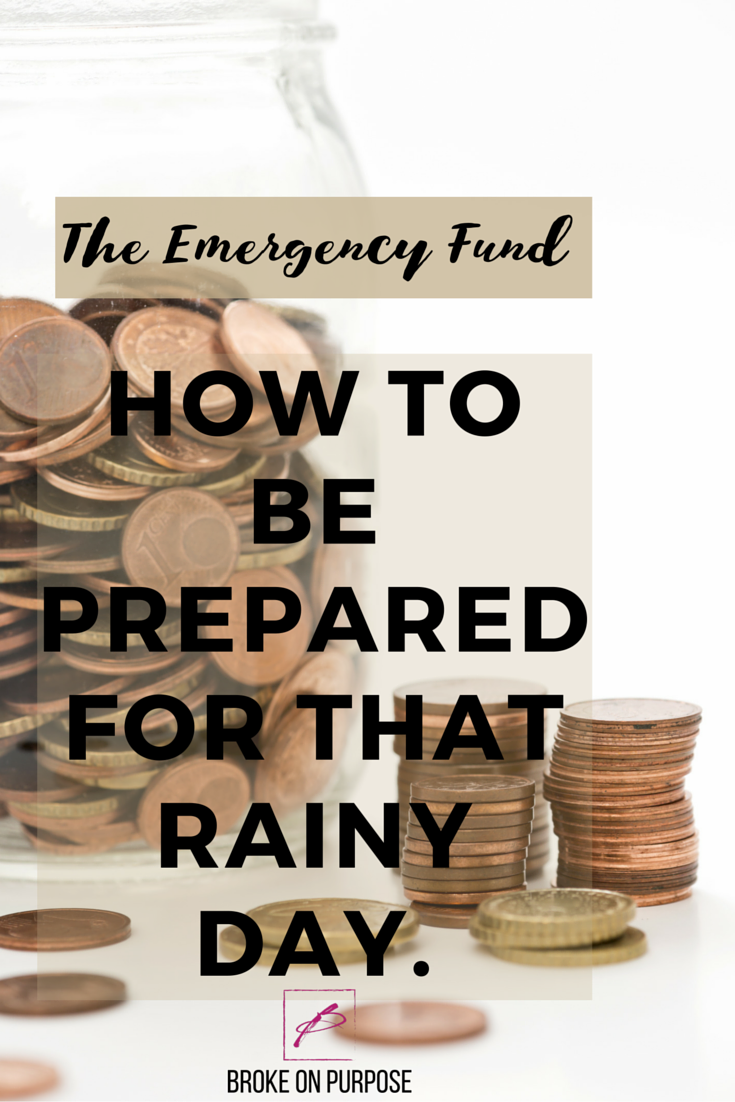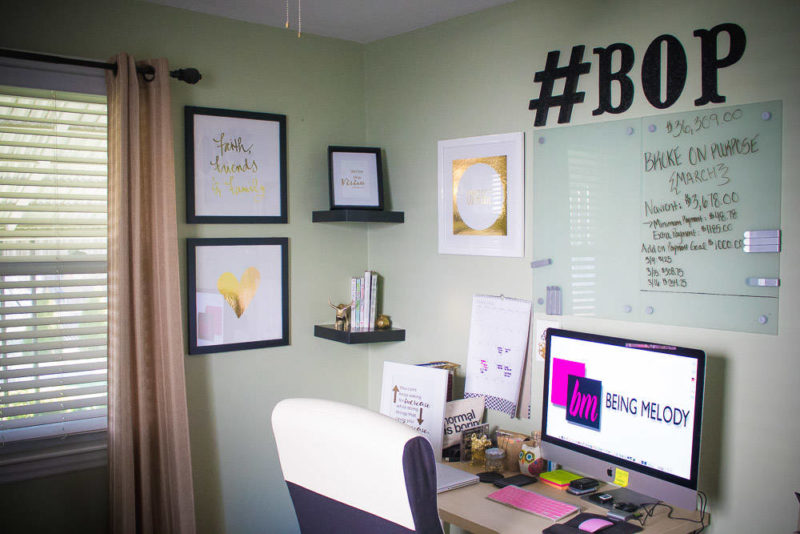
Emergency’s happen. They are a part of life and are often times unavoidable. How you handle your finances can be the difference between an emergency being categorized as a situation, basically something that just happened or an all-out crisis. A recent survey by Bankrate showed that Americans aren’t saving money. Most Americans (63%) may not have enough money in savings to cover an unexpected $500 car repair or a $1,000 hospital emergency room visit. Emergency Funds are an essential part of any financial plan. They are basically a readily available supply of money that can be used to handle life happening. Think of it as a security blanket, or like the spare tire you keep in your trunk. It’s there for you when you need it. I recently had a Broke on Purpose client who received an unexpected medical bill that was due within two weeks of receipt. Instead of letting that medical bill derail her plan she bossed up and took control of the situation. She told herself “I have a plan, and I have resources.” and turned that would be emergency into a situation instead of letting it become a crisis. Think about all the times in your life where an emergency fund would have come in handy. Now ask yourself if an emergency were to arise today would I be able to handle it?
How Much Should be in an Emergency Fund?
The amount that you should keep in your emergency fund is going to vary from person to person. I often tell people that if they’re actively working to pay off debt the emergency fund should range from $500-$1000. Since we are homeowners my husband and I have set our emergency fund at $2000. I usually tell people to base their emergency fund on the type of responsibilities they have as everyone’s situation is going to be different. While $500 is a great emergency fund for someone who is in high school or in college If you’re a working adult with responsibilities your emergency fund should be at a minimum of $1000.
When Should an Emergency Fund Be Used?
Emergency Funds should be used only in an emergency. If you’re wondering what constitutes an emergency ask yourself the following:
Can I live without it or is it a necessity? When faced when an unexpected emergency take time out to think the situation through before reacting. If you’re dealing with unexpected car repairs that will keep you from getting back and forth to work then you would consider the situation an emergency and thus use the money in your emergency fund to cover the bill. While some would beg to differ your TV going out would not fall into this category.
Is it unexpected? You may think this question is silly but you’d be surprised at how many times people view expected bills as an emergency. Do not use your emergency fund to cover items that you can budget for. If your car insurance is due every 6 months work the monthly payments into your budget and set it aside. Buying concert tickets for your favorite artist that randomly decided to go on tour does not constitute the proper use of your emergency fund. The impromptu tour may be unexpected and you may feel the need to reach into your emergency fund to treat yourself but go back to the first question. Can you live without it and is it a necessity?
Where Should I Keep my Emergency Fund?
Emergency funds should be readily available. Since most emergency funds are $1000 you can choose to keep the cash on hand hidden in a safe place or open up a separate savings account. If you’re worried about being unable to resist using the money for a non-emergency situation you can also use an online bank like Capital One 360. Keep in mind with most online banks it takes 2-3 days to transfer the money over. I would not suggest investing your emergency fund or putting it in something like a CD as again you want the money to be there when you need it.
How Can I Save Up For an Emergency Fund while Paying Down Debt?
If the situation allows I suggest saving up for an Emergency Fund before starting any debt repayment program. The faster you get the money saved the quicker you can start attacking your debt. You can save up money for your emergency fund by combing through your budget and looking for ways to cut back on some expenses. Foregoing those daily trips to the coffee shop even if it’s for a plain cup of Joe can save you $40 a month.
Sell Your Old Stuff- you’d be surprised at how much you could make by selling gently used items in your home that you no longer need. If you don’t want to hold a physical yard sale there are plenty of online sites that will allow you to post your goods for sale. I’ve made over $1900 selling gently used clothing and accessories on the Online Consignment store called PoshMark.
Get a side job- Picking up a part time job, even on the weekends can go far to saving up for your emergency fund and even paying off debt. Many people stick their noses up at the thought of a part-time job but remember it’s only a temporary thing until you meet your goals.
Once you’ve saved up the minimum amount you’ve decided that you need in your emergency fund you can either choose to stop funding it completely and use the extra money to pay off debt, or you could choose to keep saving a smaller amount each month while tackling debt. Whatever you choose you’ll have peace of mind knowing that if an unexpected situation arises you have the financial means to handle it.



